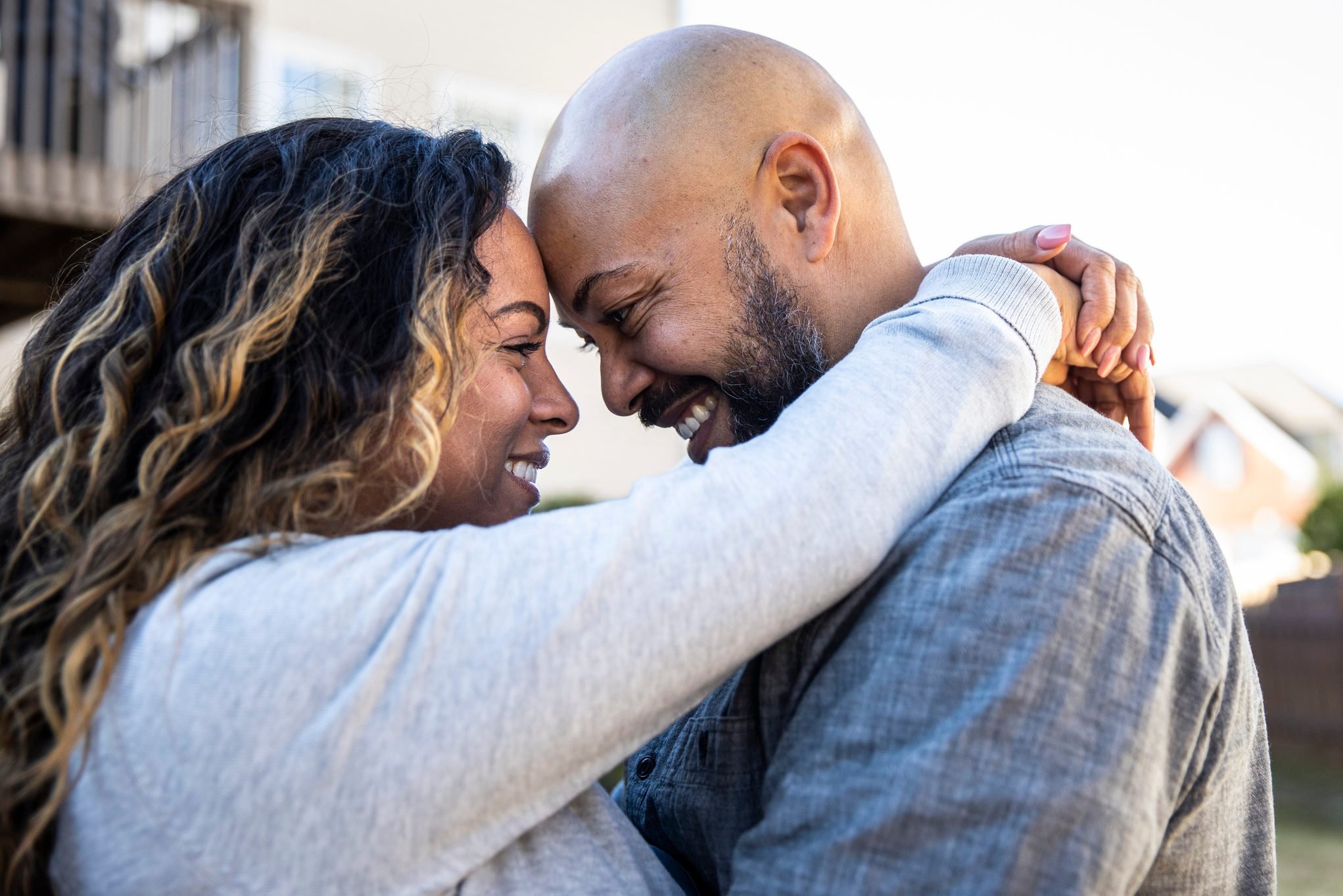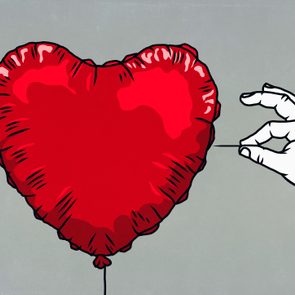A Guide to Healthy Relationships (and How to Spot Unhealthy Ones)
Updated: Mar. 29, 2021
Personal connections and healthy relationships may help you lead a happier life. Here's how to recognize toxic behavior, and build strong, supportive relationships.
Our editors and experts handpick every product we feature. We may earn a commission from your purchases.
On This Page
Relationships and well-being
Your life is filled with relationships: close friends, romantic partners, family members, and even co-workers. For most humans, socializing, talking to, and interacting with other people is important for a sense of well-being and life satisfaction.
Relationships aren’t perfect, but healthy connections can play a role in having a happier life. However, we all know that not all relationships are beneficial—some can be destructive, cause stress, or be harmful for mental or physical health.
Here’s a look at the world of interpersonal connections and the impact they have on your health and happiness.
Healthy relationships
Healthy relationships are based on characteristics like trust, honesty, and respect. One of the most important aspects of a healthy relationship is communication. Partners should agree to listen closely and compromise, while working to resolve disputes, says Stephanie Newman, PhD, a psychoanalyst and psychologist in New York. (Read these relationship communication quotes every couple will love.)
For a 2019 study published in the Proceedings of the National Academy of Sciences of the United States of America, researchers wanted to learn the key to happy relationships. They used machine learning to sort through data from 43 separate studies of more than 11,000 couples from the United States, Canada, the Netherlands, New Zealand, Israel, and Switzerland.
They found that key factors like life values, education, introversion or extroversion, didn’t rank very high on the list. Instead, the top factors linked to successful relationships were believing your partner is committed to you, feeling appreciated by your partner, sexual satisfaction, seeing your partner is happy, and being willing to deal with conflict.
Keep in mind that healthy relationships don’t all look the same, and your own personal definition may change over time. However, whether you are in a traditional, polyamorous, or other non-traditional romantic or domestic partnership, certain elements—communication, respect, and trust—are still important.

What about falling in love?
More than two decades ago, social psychology researcher Arthur Aron of Stony Brook University in New York, developed 36 questions that he said made two strangers fall in love in a lab. He published his results in the journal Personality and Social Psychology Bulletin.
In a series of experiments, pairs of strangers (and in another version, pairs of college classmates), were asked to take turns asking each other the predetermined 36 questions. The questions were divided into three sets of 12 and ranged from “Would you like to be famous? In what way?” to “When did you last cry in front of another person? By yourself?” Then, at the of the experiment, the pairs had to stare into each other’s eyes for four minutes without interruption.
Here’s what happened when one woman tried this technique in her own life. It started out in a bar, not a lab. But spoiler alert: They ended up on a bridge at midnight, staring into each other’s eyes for four minutes. (If that puts you in the mood for romance, check out these love quotes that perfectly capture what it’s like to fall in love.)
Unhealthy relationships
You might not realize you’re in an unhealthy relationship until it’s over. That’s when friends make a point of telling you they’re happy that you left. Although hindsight is clear, you might wonder how you could have been so oblivious to the signs.
If you’re in an unhealthy relationship, you might feel like you have to hide your accomplishments and plans from your partner out of fear that they might get jealous, says Jessica Griffin, PsyD, licensed clinical and forensic psychologist, and an associate professor of psychiatry and pediatrics at the University of Massachusetts Medical School in Worcester.
You might feel pressure to change or appear different than you are to please your partner. You might not do things you love or be with people you like because your partner doesn’t like them. Doing these things can show up in your body as headaches, stomachaches, or other types of stress.
Some arguments, of course, are normal in every relationship. (Here’s how to tell the difference between healthy and unhealthy relationships.) But if you have the same fights over and over again, or one partner always has to be right, those could be the types of arguments that may end relationships. And there are relationship deal breakers like abuse or infidelity in a romantic partnership that can signal it’s time to move on.
Narcissism
In a healthy relationship, you talk a little about yourself and your partner, friend, or family member talks a little about themselves. You take turns doing what you both like to do and you are interested in each other.
But if you start dating someone with a narcissistic personality or narcissistic traits, you might feel like you have relationship whiplash. They might start out charming, outgoing, and confident. But then things can deteriorate. Narcissists—who tend to have an overwhelming self- and ego-centered focus at the expense of empathy or concern for others—have trouble forming a true emotional commitment.
They devalue your priorities and they always have to be right. Those are just some of the signs you’re dating a narcissist. (Also, learn the difference between sociopaths vs. narcissists.)
Narcissists tend to go to great lengths to avoid feeling shame. They devalue those around them, which can result in a cycle of emotional and physical abuse.
While they are prioritizing themselves over everyone else, they might use extreme language and say things in public that are extremely negative. (These are some of the signs of narcissistic abuse.)
Keep in mind that narcissism isn’t just a problem in romantic relationships. Having a friend or a narcissistic parent can be a problem as well. It is important to note that people who meet the full criteria for a narcissistic personality disorder are extremely rare. Narcissistic traits like the ones above, however, are more common.
Gaslighting
Do you feel like your world is upside-down in your relationship? You could be the subject of gaslighting.
Gaslighting is when someone you love manipulates and distracts you to distort the truth, making you question your own reality. Gaslighting can happen in any close relationship, such as between romantic partners, friends, or family members.
Gaslighting is a form of abuse. People who gaslight might say something like “You’re too sensitive” or “If you really loved me, you would…” in order to get what they want. (Here are common gaslighting phrases. )
Gaslighters control you in order to get you to doubt your truth. They might use it as a way to deflect blame for their own actions or as a way to isolate you. (Check out these gaslighting examples.)
While definitions and signs can help, sometimes social media might resonate a little more clearly. (Gaslighting memes combine humor, truth, and a sense of community to help you understand what’s happening.)
Toxic relationships and behavior
In a healthy relationship, your partner makes you feel good about yourself and them. In a toxic relationship, it seems like things can always take a negative turn.
Toxic people are always blaming their partners, telling them what they’re doing wrong, and being critical all the time, says Jane Greer, a marriage and family therapist in New York City and author of several books, including What About Me? Stop Selfishness From Ruining Your Relationship. They aren’t able to consider their partner’s needs or empathize with them. They’re selfish and can only think about themselves.
In a toxic relationship, you may notice your partner has no friends other than you or you’re always apologizing and you’re not sure why. Those are just some of the signs you’re in a toxic relationship.
But toxic relationships aren’t always romantic. Are you reluctant to tell a certain friend about a new love interest, job promotion, or other great news because you’re worried about how they’ll react? If you know they’ll be negative, jealous, or competitive, it’s time to leave those toxic friendships behind. (Are you in a toxic relationship? Here are quotes about toxic people that can help you heal.)
Abusive relationships
There should be no mental, emotional, or physical abuse in any of your relationships. Period.
In the United States, an average of 20 people per minute suffer abuse, according to the National Coalition Against Domestic Violence. Women are more likely to experience abuse from a partner, but men can also be victims of domestic violence.
For most relationships where there is some element of domestic violence, the abuse is often hidden until later in the relationships. The victim is surprised that they were in the middle of an abusive relationship and didn’t know it.
But the warning signs can appear early. Your partner may be alarmingly controlling or you always feel like you’re walking on eggshells. Maybe they have no personal life except with you or they’re extremely jealous. (These are more domestic violence signs in relationships.)
If you’re in an abusive relationship, consider calling the National Domestic Violence Hotline at 1-800-799-7233. Prepare yourself emotionally, work out the logistical and legal details, and pick a safe time to leave. ( These expert tips can help you prepare to leave an abusive relationship.)
Many victims feel shame and guilt when they’ve left an abusive relationship, but it can help to hear from others who have done the same things. These abusive relationship quotes can help you move on.
Tips for building a healthier relationship
If you’re in a good relationship, it’s easy to take it for granted. So don’t. Here are some tips for making your relationship stronger.
- This 30-second habit will make your relationship stronger: Every evening, take time to write down what you enjoyed or appreciated about your partner that day. Then reread your thoughts at the start of the next day.
- Even in the best relationships, it’s important to work on communication skills. Use clear language, lead with your feelings, and avoid any trigger words.
- Trust is key to every relationship. To help build trust in a relationship, be honest, vulnerable, and respect your partner.
- You may want to consider working with a relationship coach. These problem-solvers are very goal oriented. They help you figure out what you want from your relationship and what steps you need to take to get there.
Helpful products
There are a wealth of resources, including books and classes, that can help you work on your relationships. Whether you want to communicate better, feel less angry, or just show someone how much you care, here are some products that might help you build stronger relationships.
- 12 Products That May Help You Control Your Anger
- The Best Essential Oils for a Sizzling Sex Life
- 12 Stress-Relief Toys and Products That Actually Work
- 6 Happiness Books that Mental Health Experts Trust
Personal stories
Sometimes reading other people’s relationship stories can help you understand yours better.
- How I Used 7 Communication Tips to Improve My Relationship
- My Husband and I Did Marriage Counseling for One Month—Here’s What Happened
- Why I Stayed in An Abusive Relationship
- 10 Things These Women Who Escaped Abusive Relationships Want You to Know
- The Magic of Their Early Romance Helped Save Their Marriage in Its Darkest Hour




















